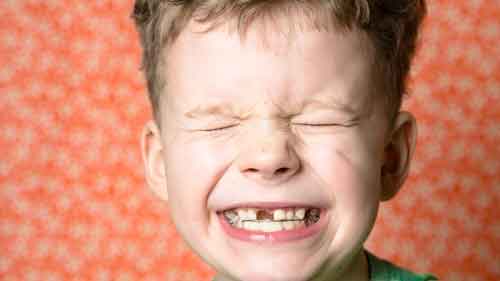
14 Dec How Stress Can Affect Your Childs Smile?
For years, doctors have warned that stress can increase the risk of everything from high blood pressure to depression. But how often do we consider how stress or anxiety affects our teeth or smile? How about your child’s smile? Stress-related oral problems affect children just as much as adults.
Here are some dental issues associated with increased anxiety and stress levels:
Canker and Cold Sores
Cold sores are a herpes simplex virus symptom. Scientists aren’t sure what causes canker sores, but they believe they’re caused by an infection, a virus, or a weakened immune system. If you or your child is prone to mouth sores, you are probably aware that nervousness seems to aggravate them or lengthen their healing time. Communicate with your doctor or dentist. Your healthcare provider can advise you on medications, diet, and stress-reduction techniques.
Grinding of the Teeth
It should come as no surprise that teeth grinding (bruxism) is bad for your teeth. It begins with enamel wear, then progresses to lose teeth and, finally, tooth loss. Other issues, such as gum recession, headaches, and TMD, may occur during this progression. If you notice your child grinding their teeth, it is critical that you address this issue as soon as possible. Aside from stress, there are numerous other factors that can cause or worsen bruxism. Malocclusion (bad bite) and prescription depression and anxiety medications are examples of these. Your dentist may recommend an appliance to protect your child’s teeth and keep their jaw in the proper position while you sleep. Other treatments include cognitive behavior therapy, relaxation therapies, mandibular advancement devices, physical therapy, and medication. Check out how to handle teeth grinding?
Temporomandibular Disorders (TMD)
TMD can be caused by a variety of direct and indirect factors. Inability to manage stress, for example, may result in jaw clenching, which causes pain in the jaw joint. TMD can also cause tenderness, pain, or swelling in the neck, ear, face, or shoulder, as well as popping or clicking sounds and changes in bite alignment. Again, if you or your child experience any of these stressful symptoms, consult your dentist.
Gum Disease
Stress can impair your ability to combat plaque buildup, which can lead to gum disease. Speaking of dental health and prevention of stress, this article on Oral Health has some tips also.
Dental Hygiene
When children are under a lot of stress, they may forget to brush and floss their teeth.
Diet and Stress
When men and women are under stress, it is common for them to consume more sugar and snack more frequently between meals.
All of this at a time when maintaining good oral hygiene isn’t always a top priority! Let’s break this vicious cycle now. To protect your child’s dental health, schedule an appointment with Dr. Alina in Allen today, please call at 972-727-0011. Remember, a healthy smile will give them one less thing to worry about.
Related Articles:
Oral conditions cause by Anxiety
7 ways Stress affects your oral health
